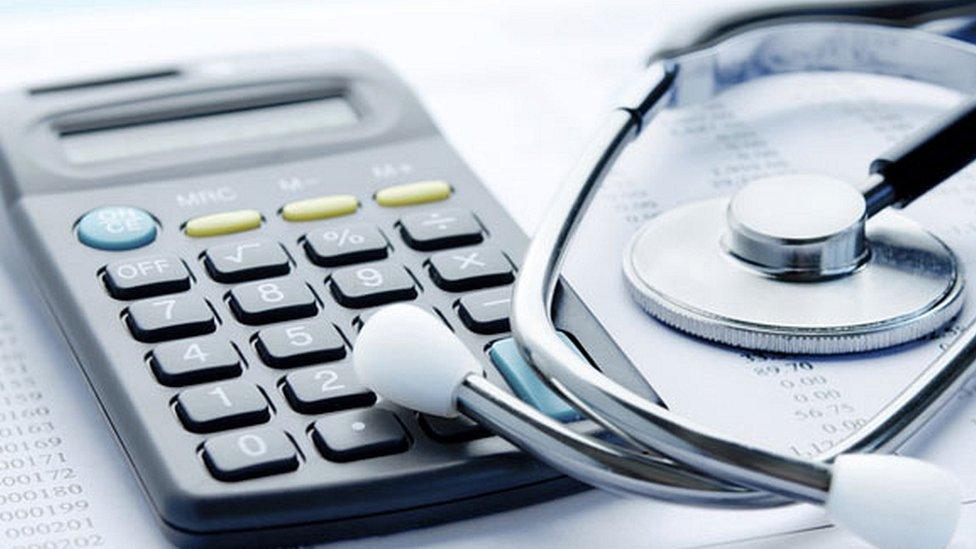NHS Wales gets £50m more for winter pressures
- Published
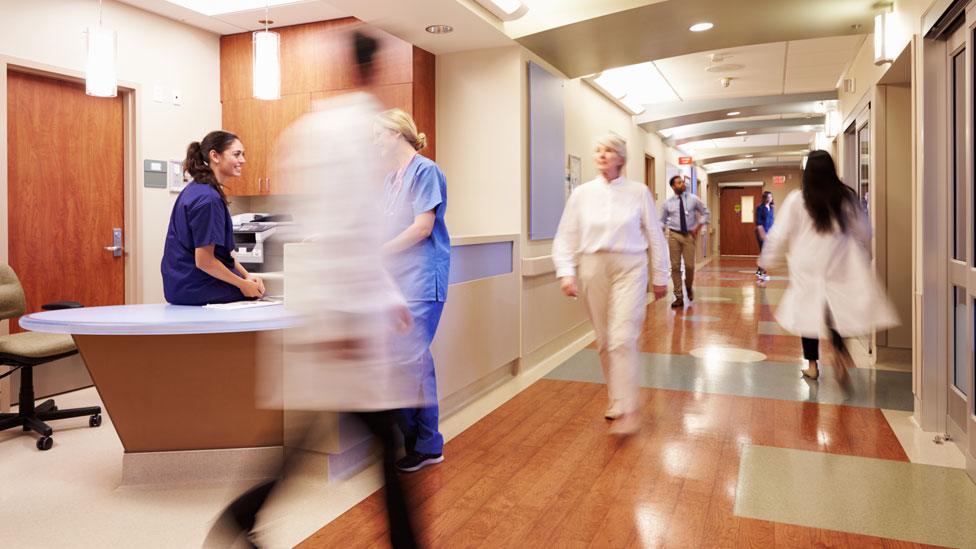
An extra £50m is being made available for NHS Wales to deal with winter pressures on hospitals.
The investment, up from an extra £45m in 2015, will look to prevent routine surgery being cancelled and to continue tackling waiting lists.
Patients are also again being asked to "choose well", external and only use accident and emergency departments when necessary.
A 24-hour health advice line for non-emergencies is also being trialled in the Abertawe Bro Morgannwg area.
Health Secretary Vaughan Gething said the extra funding would allow the NHS to "sustain performance and meet the increased demand" on services going into the winter period.
NHS Wales managers want to see no let up in the focus on tackling waiting times, as day-to-day pressures intensify.
"It's trying to give a balance between elective patients coming in and emergencies and just to recognise that organisations have been trying to focus on better waiting times for their patients," said Dr Andrew Goodall, NHS Wales chief executive.
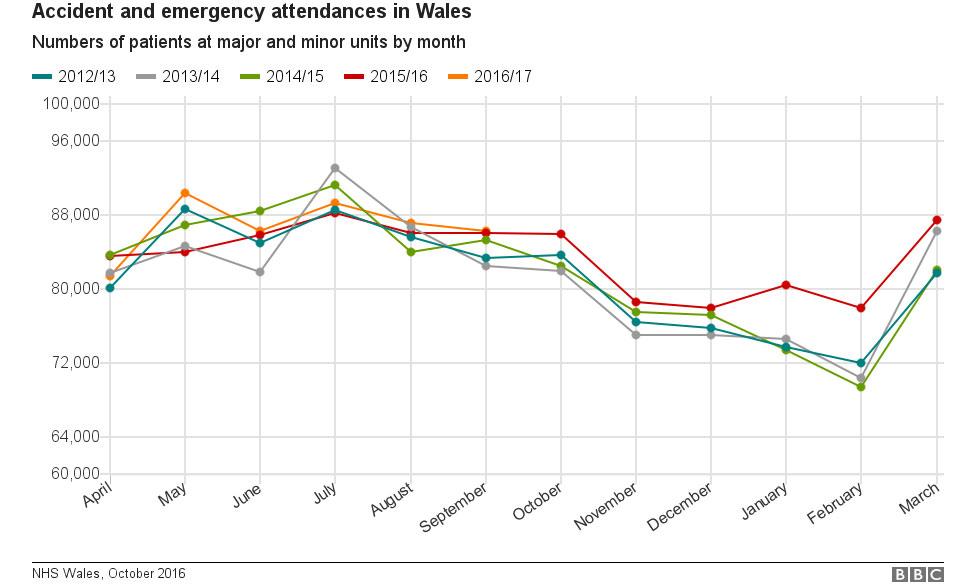
Pressures on accident and emergency units are year-round, although the numbers of patients attending are usually higher in the summer months.
But the types of cases in the winter often involve elderly patients, who are more seriously ill, which puts a pressure on beds.
The winter peak in recent years has been in March.
Dr Goodall said there were always peaks and troughs but people can help by seeking the correct medical help instead of defaulting to accident and emergency departments.
He said: "A&E is for people who are very sick or badly injured and unless this is the case you will get the right care quicker by choosing well.
"Even if the A&E is closer, it is not the best place to go to for most health problems."
In the Abertawe Bro Morgannwg health board area, a free 111 telephone advice service for non-emergencies will be trialled and evaluated before the service is rolled out further.

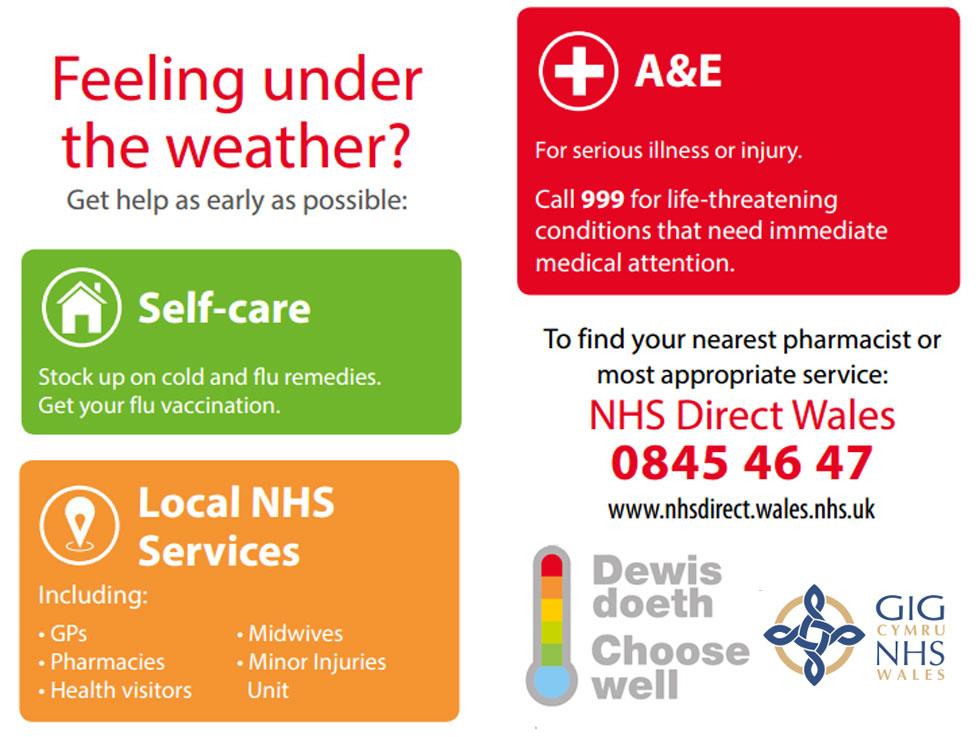
HOW CAN YOU HELP?
Order repeat prescriptions in good time so you do not run out of medicines
Ask your GP or pharmacist about a flu jab, it can prevent a serious illness from developing
Cancel GP or hospital appointments you cannot make so it can be given to someone else
Visit your pharmacy or supermarket to stock up on first aid kits and cold and flu remedies to treat minor ailments and injuries yourself
Wash your hands to kill any germs to prevent the spread of viruses
- Published26 October 2015
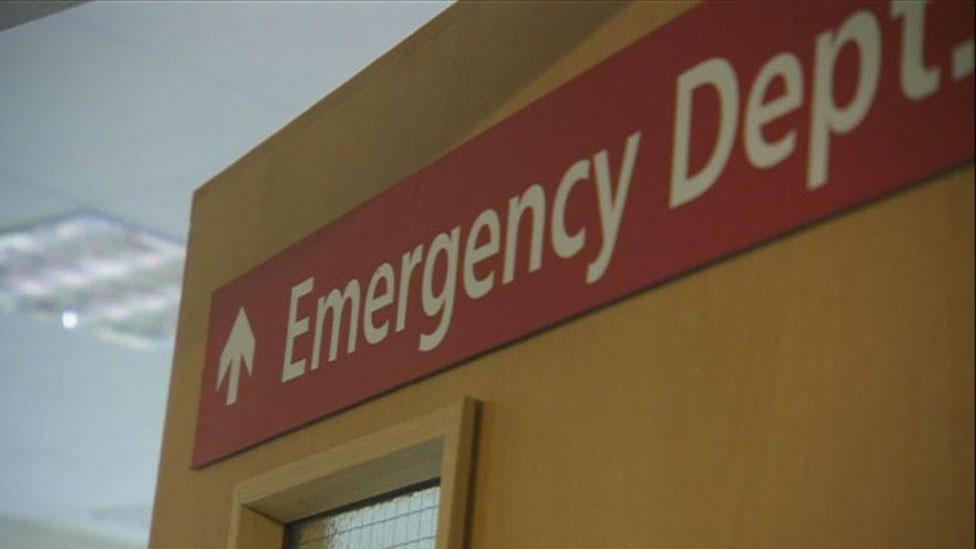
- Published7 July 2016
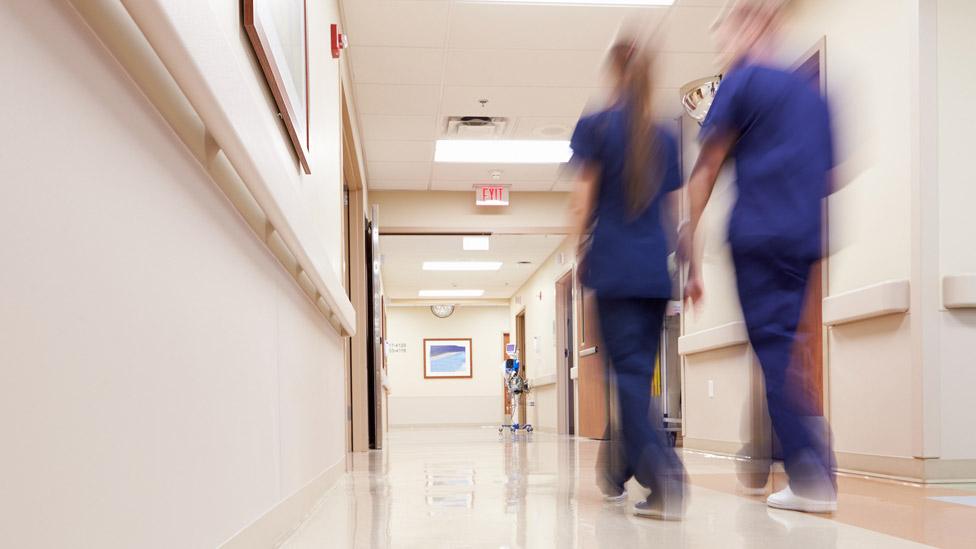
- Published21 June 2016
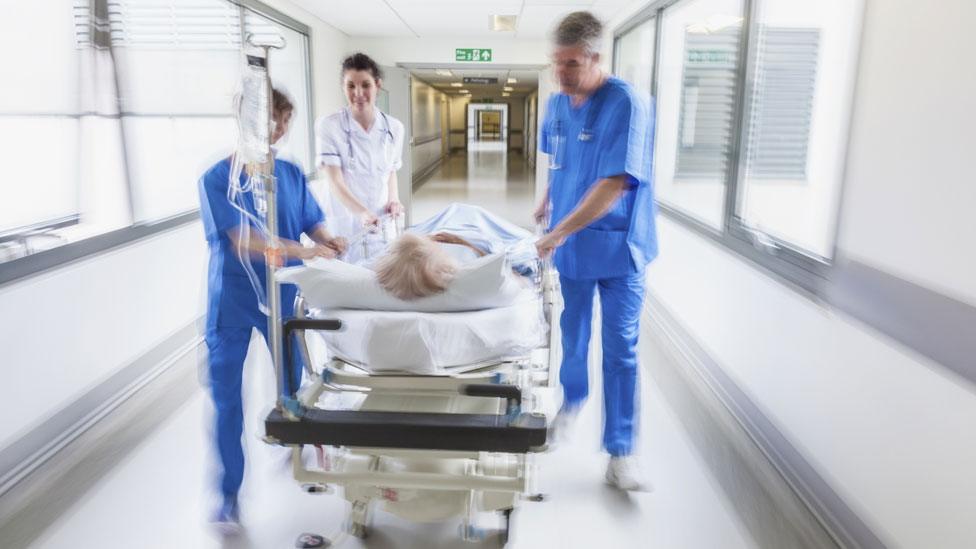
- Published18 February 2016
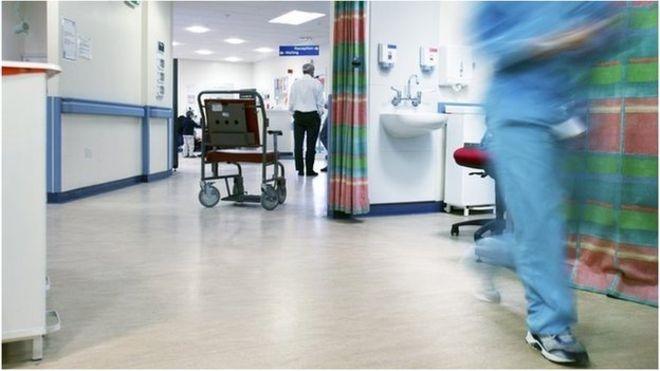
- Published19 January 2016
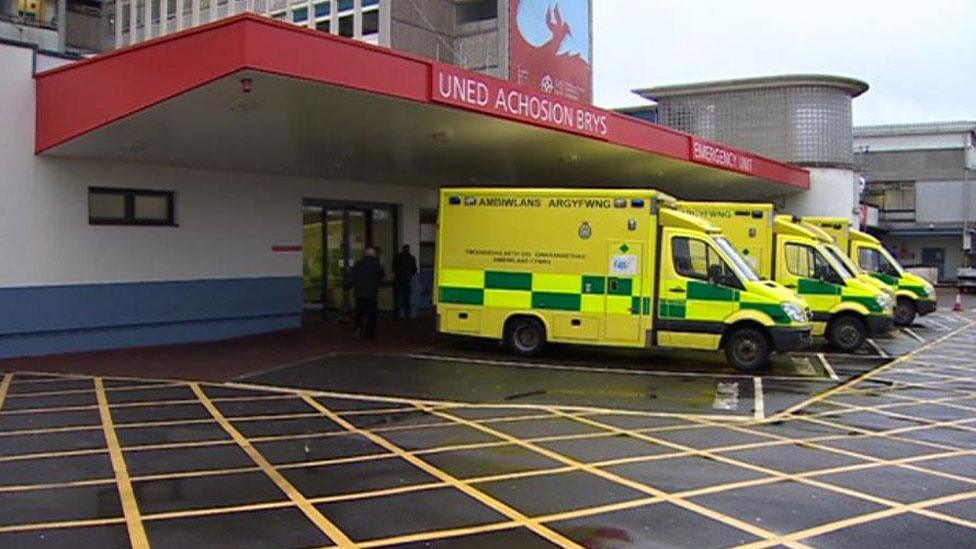
- Published22 April 2016
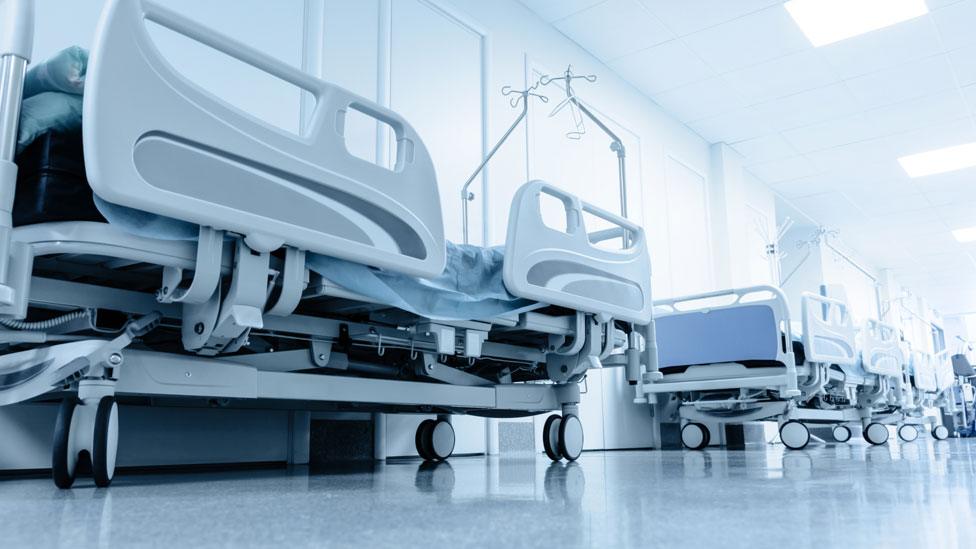
- Published13 January 2015
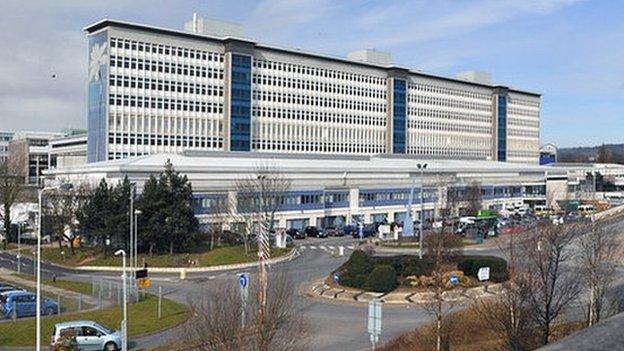
- Published13 October 2016
